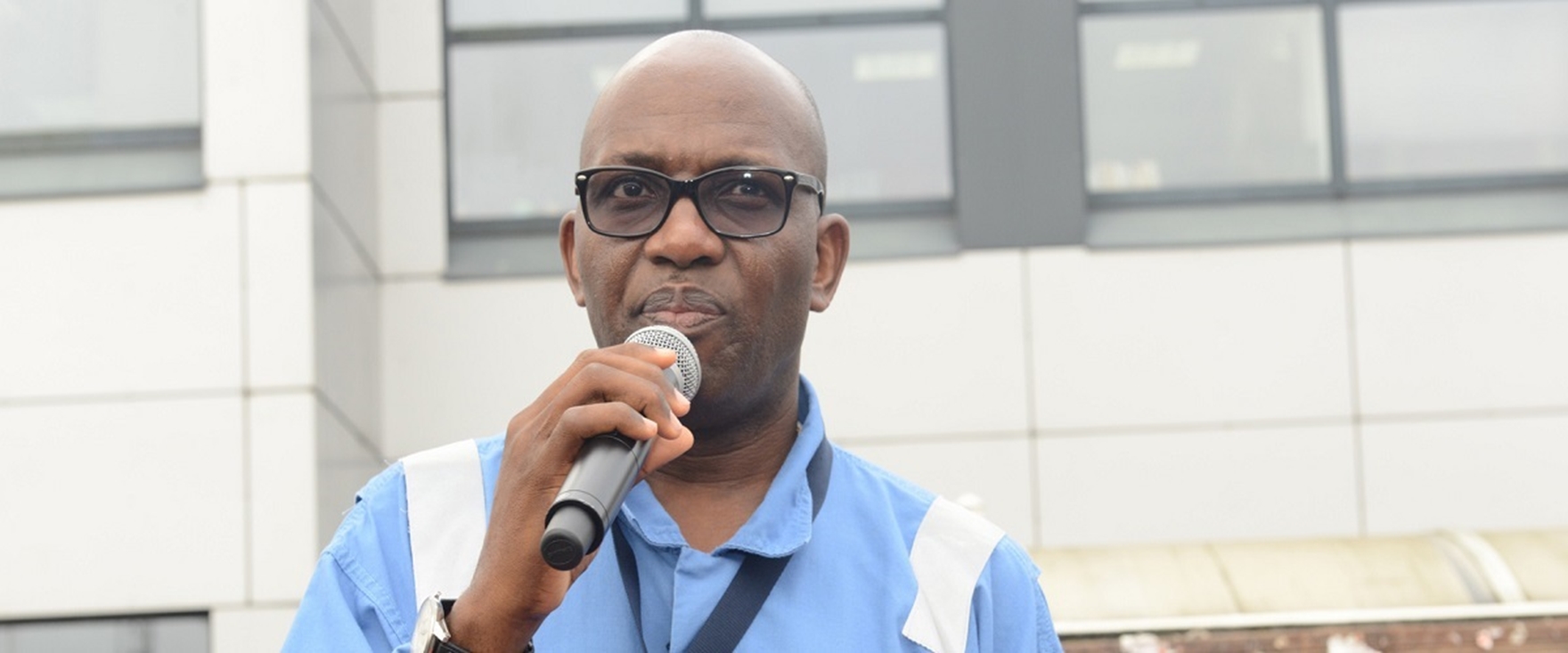Nigeria LNG’s efforts to fund the expansion of its LNG export plant on Bonny Island will be a test of the company’s hard-won financial credibility and determination to distance itself from political interference.
The depth of its focus on promoting Train 7, which would lift output by over 8 million tonnes a year (t/y) from the 2017 level to 30m t/y by 2023, is underlined by managing director and chief executive officer Tony Attah’s tireless efforts to raise investment for it. But he says these efforts are paying off.
“The stars are aligning for this project, which is crucial towards us remaining a global player and helping to build a better Nigeria,” he told Petroleum Economist on the sidelines of the WGC conference in Washington. “We grew accustomed over many years to being the fastest growing LNG project in the world—and we lost our edge as the landscape changed. But we haven’t lost our ambition to be in the world’s top three. We need to raise our game, and for new capacity the Train 7 project is the game-changer”.
Nigeria was the world’s fourth-biggest exporter of LNG behind Qatar, Australia and Malaysia between 2015 and 2017, according to data from IHS Markit, and Nigerian LNG exports reached a record 21.3m t/y last year. But it faces a potential decline in influence as the US, Russia and Mozambique ready major new export capacity ahead of an expected global LNG supply crunch in 2023.
The deadline may be helping to fuel Attah’s resolve, but his ambition is set against major challenges including domestic political wrangling over the cost, and international apprehension over security issues such as militancy in the Niger Delta. Together these doubts led to a more than decade-long delay before FEED contracts were signed in July, and political and economic turbulence again reared its head last month.
In August, stocks dropped to a more than nine-month low as second-quarter earnings fell and political stability was rocked by the defection of President Muhammadu Buhari’s third-most senior official to the opposition ahead of next year’s presidential elections. Quarterly statistics released by the National Bureau of Statistics (NBS) that month also showed that total oil and gas investment between April and June dropped by about 70.98% to about $24.85m year-on-year.
The company wants to raise almost $7bn to cover the cost of the construction and a further $5bn for upstream investment to ensure gas feedstock. But despite the size of the challenge and macro risks, Attah believes that other key obstacles are falling away.
“The most important factor is government support and we can safely say we have that now. Previous administrations saw Train 7 as one of many other competing potential projects, this government is more focused on us,” he said.
In a statement released to mark the FEED contracts being signed, Buhari – a former Federal Commissioner for Petroleum and Natural Resources – wrote that Train 7 was a crucial part of a planned “gas revolution” needed for the country to diversify from oil exports.
Competitiveness is key
CEO Attah also feels that Train 7 faces less technical challenges than other major LNG projects.
“For a greenfield, you may expect there to be technical complications, but these don’t exist. We already have six trains – we’ve proven we can build and run them there, as we’ve done efficiently over the past 19 years”.
The firm has adopted a dual FEED approach, using two consortiums with the aim of shortening the 9-12 months it typically takes. One group comprises US firm KBR, France’s Technip and Japan Gas Corporation (JGC). While the other consists of Italy’s Saipem, Japan’s Chiyoda and South Korea’s Daewoo.
Attah added that because the technical and political challenges are the “only conventional risks”, the project faces, that it is even more vital to get it producing to hit the 2023 “window” that the LNG market has targeted for a global tightening in supply.
“The door is opening in front of us and we are actualizing the dream that is Train 7. We have very credible government support, and equally strong support from our shareholders.”
NNLG has been structured so that IOCs own the majority of the company. The state-controlled Nigerian National Petroleum Corporation owns 49%, while Shell has 25.6%, Total and Eni share the remaining at 15% and 10.4% respectively.
The joint venture status, and the resulting political independence has aided Nigeria LNG in fostering an image of financial probity that’s appealing to international investors. In July, the company said it had fully repaid $5.45bn of shareholder loans. At the time, Attah stressed the company’s excellent track record of loan repayments to international lenders over the two decades since the project’s inception.
However, with a wary eye on managing shareholder expectations, Attah repeated the word “competitiveness” several times in the interview.
“We can’t control the market, and are mindful of other unexpected risks that will arise. This is why we are focused on always achieving competitiveness in this project,” he said. “In the lead-up to the FID, during the post-FID period and in the years running up to 2023, we will need to be strong as the market rapidly evolves with new players and new demand.”
Attah is clearly considering all the factors that he can to push the project forward, but Train 7 also faces strong competition for the portion of the global energy investment pot it is targeting—and in that race domestic stability will also need to play a crucial role.




